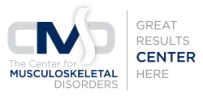Introduction
Mild pain medications can reduce inflammation and pain when taken properly. Pain medications cannot stop the effects of aging and wear and tear on the spine. But they can help control pain. If you are pregnant, you should not take any medication unless you have discussed it with your obstetrician.
General Tips
- Medications should be used wisely. Take them exactly as prescribed by your doctor and report any side effects
- Some pain medications are highly addictive
- Pain medication is less effective for controlling chronic pain if used over a long period
- Medication will not “cure” pain of degenerative origin
Medications Prescribed For Back Pain Include
Aspirin – Aspirin compounds are over-the-counter medications that can help relieve minor pain and back ache. The main potential side effect with aspirin is the development of stomach problems- particularly ulcers with or without bleeding.
NSAIDs – Non-steroidal anti-inflammatory drugs (NSAIDs) include over-the-counter pain relievers such as ibuprofen and naproxen. These medications were once only available by prescription. NSAIDs are very effective in relieving the pain associated with muscle strain and inflammation. Be aware that NSAIDs can decrease renal function if you are an older patient. Excessive use can lead to kidney problems.
COX-2 Inhibitors – A new class of NSAIDs is gaining wide acceptance in its ability to reduce inflammation. Commonly called COX-2 inhibitors, these newer NSAIDS work by selectively blocking the formation of pain-causing inflammatory chemicals. COX-2 inhibitors appear to be easier on the stomach, mainly because they don’t interrupt stomach enzymes like traditional NSAIDs. Celecoxib (Celebrex(r)) and refecoxib (Vioxx(r)) are two commonly prescribed COX-2 inhibitors.
Nonnarcotic Prescription Pain Medications – Nonnarcotic analgesics (pain relievers) are ideal in the treatment of mild to moderate chronic pain. Tylenol(tm) and aspirin are the most widely used over-the-counter analgesics. Medications that are analgesics and require a prescription from the doctor include NSAIDs, such as carprofen, fenoprofen, ketoprofen, and sulindac. To reduce side effects do not lie down for 15 to 30 minutes after taking the medication, avoid direct sunlight, and wear protective clothing and sun block. Avoid using these medications if you have recurrent ulcers or liver problems.
Narcotic Pain Medications – If you experience severe pain, your doctor might prescribe a narcotic pain medication such as codeine or morphine. Narcotics relieve pain by acting as a numbing anesthetic to the central nervous system. The strength and length of pain relief differs for each drug.
Narcotics can have side effects such as nausea, vomiting, constipation, and sedation (drowsiness). These side effects are predictable and can often be prevented. Common preventive measures include not taking sleeping aids or anti-depressants along with narcotics, avoiding alcohol, increasing fluid intake, eating a high fiber diet, and using a fiber laxative or stool softener to treat constipation. Remember that narcotics can be addictive if used excessively or improperly.
Muscle Relaxants – If you are having muscle spasms, muscle relaxants may help relieve pain. They have only been shown to be marginally effective. Muscle relaxants also have a significant risk of drowsiness and depression. Long-term use is not suggested; only three to four days is typically recommended.
Anti-depressants – Back pain is a common symptom of depression and could be an indicator of its presence. Similarly back pain can lead to emotional distress and depression. It seems that the same chemical reactions in the nerve cells that trigger depression also control the pain pathways in the brain. Anti-depressants can relieve emotional stress associated with back pain. Some anti-depressant medications seem to reduce pain-probably because they affect this chemical reaction in the nerve cells.
Some types of anti-depressants make good sleeping medications. If you are having trouble sleeping due to your back pain, your doctor may prescribe an anti-depressant to help you get back to a normal sleep routine. Anti-depressants can have side effects such as drowsiness, loss of appetite, constipation, dry mouth, and fatigue.
Pain Management Centers in NYC & NJ
The Center For Musculoskeletal Disorders help patients treat pain caused by orthopedic disorders and injuries. Our physicians take a conservative, patient centered approach to treatment. Our Pain Management Centers are conveniently located in Manhattan, Queens and Englewood.
